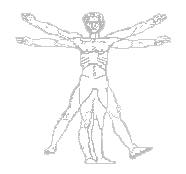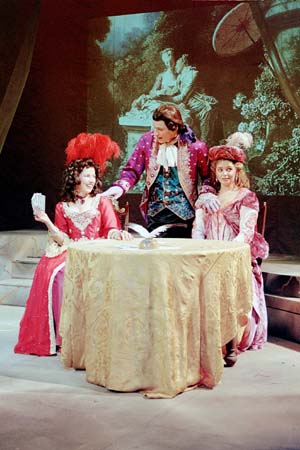Spring 2006 -- Pinter
Featured Pages: Film Directing * Wedding: class project -- finals *
Summary
Textbook: Part VII -- The Whole Picture (305)Questions
Overview -- and final exam!Notes
I still didn't get to writing captions to photos...Directors Lab Lincoln Center Theatre
Performance Theory by Richard Schechner; Routledge, 1988
[ ch.3 DRAMA, SCRIPT, THEATER, AND PERFORMANCE + 5. TOWARD A POETICS OF PERFORMANCE : HUNTING CIRCUITS, CEREMONIAL CENTERS, AND THEATERS + 8. MAGNITUDES OF PERFORMANCE : A FIGURE FOR ALL GENRES ]
Understanding Hamlet: A Student Casebook to Issues, Sources, and Historical Documents by Richard Corum; Greenwood Press, 1998
2006:
Beckett in Directing Class script breakdown
Godot biblio notes in Directing directory
Director's Notes = go.dot'06 (program) UAF
* godot.ru -- Сэмюел Бекетт. В Ожидании Годо
[ru] ... Вот они срывают аплодисменты невидимого зала, вот заигрывают с ним, вот раскланиваются перед ним на авансцене.
They repeat everything so many times = they have to act (themselves)!
Раз мир так скучен, пуст и однообразен, Владимиру и Эстрагону приходится выдумывать его самим - как артистам на пустой сцене.
BOY -- Этого пятого персонажа пьесы Беккета в спектакле не было вовсе. Он - фантом. Точнее зритель из зала.
Стуруа 2003 года -- [ reviews from Moscow ]
Beckett @ 100 conference 2.2006
Why this is last, not the fist part -- directing GENRE?
PS: Internet2 conference and Virtual Theatre
... After UAF and stagematrix




